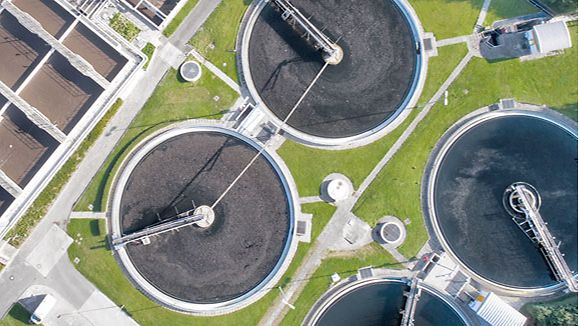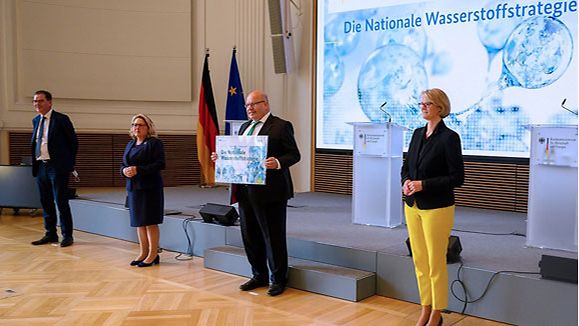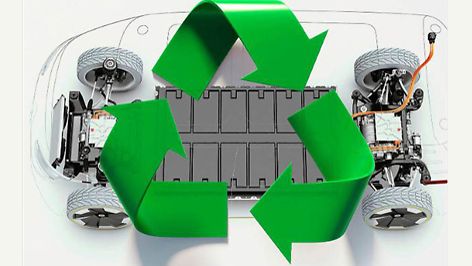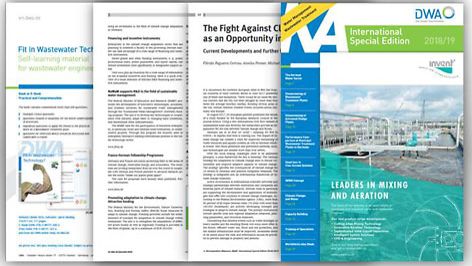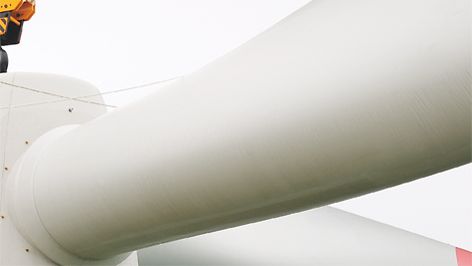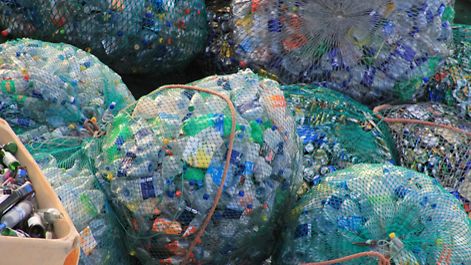Climate Change
Germany's New Government: Environmental Protection Issues and Business Opportunities
Once-in-a-lifetime, massive investments will open up new, lucrative business opportunities within environmental technologies in Germany.
On December 7, 2021, the center-left Social Democrats (SPD), environmentalist Greens and business-friendly Free Democrats (FDP) formed a new coalition to govern Germany with the SPD’s Olaf Scholz as chancellor. The Greens’ Robert Habeck, who became Minister for Economics Affairs and Climate Action, spoke of an “epochal transformation in which climate neutrality and prosperity are conceived as two sides of a coin" that would turn Germany social market economy into a “social-ecological economy.” Furthermore the coalition agreement read: “It is important to preserve what sustains us and to protect our resources.”
These aims will involve once-in-a-lifetime, massive investments, opening up new, lucrative opportunities for businesses in the field of environmental technology. Germany is going to be the place to develop and apply innovative technologies in order to face the challenges of the challenges. But what does this mean more specifically for the areas of water conservation, ocean and forest protection, adaptation to the climate change and circular economies.
Water Conservation
The new government has pledged to implement a national strategy aiming integrated water management. Beyond that, guideline on water extraction are on the agenda, with priority given to the supply of public drinking water supply and the introduction of a digital mapping to better track water quality. Last but not least, the Waste Water Tax Act will be amended.
Ocean Protection
The coalition will launch a maritime initiative and name a maritime commissioner to protection German waters. In addition, Germany has committed itself to preventing ocean pollution.
Forest Protection
The government aims to make forests more biodiverse and resilient to climate fluctuations. It plans to amend the Forest Act and improve forest monitoring.
In order to support the regional timber value chain, it will also create a timber initiative.
Adapting to Climate Change
Germany new leaders will draw up a precautionary Climate Adaptation Strategy and a Climate Adaptation Act to establish the framework for implementation and monitoring a national climate adaptation strategy. This will feature measurable goals in the various areas.
Circular Economies
Circular economies will be promoted as a means of protecting the climate and resources and an opportunity for sustainable economic development and employment. The goal is to reduce primary raw material consumption and to close material cycles. Existing raw material policies will be combined into a national circular economy strategy.
Digital product passports will be introduced and waste avoidance, for instance with multi-use systems, will be strengthened. Recycling will be further promoted.
The government will introduce a legally anchored model to reward resource-saving and recycling-friendly packaging design and the use of recyclates. It will also create a recycling label quality. Legislation will promote chemical recycling as an option. On the European level, resolute action against illegal waste exports will be taken, making such exports only legal to certified recycling plants under European law.
New forms of mobility will be needed to close economic circles. An incentive system will encourage the environmentally sound recycling of certain electrical appliances and lithium-ion batteries. Germany aims to become a hub for the research, production and recycling of battery cells. At the center of this initiative will be the further development of the European battery IPCEIs and the establishment of further cell production sites, including recycling sites.
Financing and incentives
Implementing all these solutions will requires the public and private sectors to work hand in hand. To that end, significant support will be available to companies that improve sustainability in Germany. With the Research for Sustainability strategy FONA, the German Ministry of Education and Research is doubling research funding for climate protection and greater sustainability to 4 billion euros over the next five years. Enterprises planning, for example, to establish a facility in Germany can take advantage of a wide range of financing assistance and incentives.
Direct grants and other instruments, such as public promotional loans, public guarantees and equity capital, can reduce business investment costs significantly in designated support areas.
Find a wide range of information on the incentives and funding available.
Support for new players
Expanding to Germany offers innovative foreign companies a range of potential areas for growth. Germany’s economic development agency Germany Trade & Invest (GTAI) offers free support services for companies planning to expand to this promising market.


